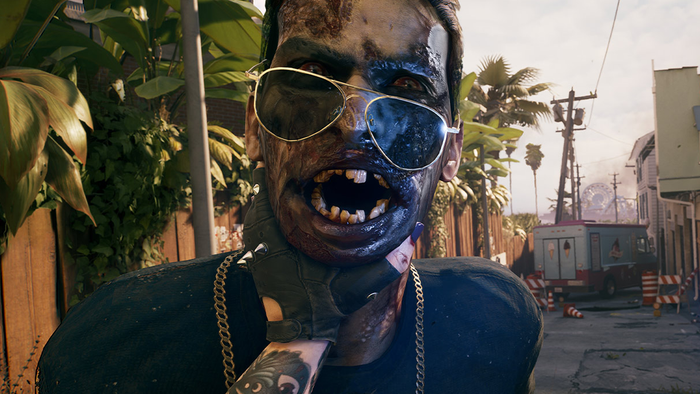Critical Reception: Epic Games/People Can Fly's Gears of War: Judgment
This edition of Critical Reception examines online reaction to People Can Fly's third-person action game Gears of War: Judgment, which reviewers describe as "a fun but feature-light shooter."

This edition of Critical Reception examines online reaction to People Can Fly's third-person shooter Gears of War: Judgment, which reviewers describe as "a fun but feature-light shooter for people who already enjoy the basic style of Gears of War." Gears of War: Judgment currently earns a score of 80 out of 100 at Metacritic.com. Joystiq's David Hinkle gives Gears of War: Judgment 4.5 out of 5 stars. "There is a parable at the heart of Gears of War: Judgment, a tale of many people affecting the one," he notes. "Though the words 'Horde mode' are not to be found on its main menu, it is this revelatory multiplayer invention of Gears of War 2 that makes Gears of War: Judgment such a success." Hinkle continues: "The guiding principles and universal value of its simple proposition -- you and your pals fight back against ever-encroaching waves of enemies -- have been so bluntly interwoven into the campaign and multiplayer components of Gears of War: Judgment that it's impossible to miss. Horde mode helped put the Gears of War series on the map and, while the mode itself is technically absent from Gears of War: Judgment, the entire game is a learned execution of its logic." Combat has been refined in Judgment. "Battles in Gears of War: Judgment are a breath of fresh air for the series," Hinkle praises. "Most of its encounters aren't scripted, thanks to developer People Can Fly's new dynamic spawning system, a sort of AI director that monitors your play and adjusts accordingly. No two encounters are the same. Death in a skirmish no longer means battling through the same group of enemies again -- battles play out differently each time you play them." "Thanks to the dynamic spawn system and its versatility [...] encounters never suffer from the stop-and-go problems found in previous incarnations of Horde -- you won't find stats screens and lengthy pre-wave waiting getting in the way of what's next," Hinkle explains. "These missions are tighter, more isolated executions of wave-based assault, and they don't waste time jumping into the action." "Whether it's multiplayer or single-player, Gears of War: Judgment proves that, for all of the series' trademark spectacle and flair, it all boils down to executing simple combat concepts well," Hinkle summarizes. "Bringing People Can Fly in was a good choice, because the developer has managed to make fighting the Locust feel dangerous and new again, despite this being my fourth trip to Sera." Arthur Gies at Polygon scores Judgment at 8 out of 10. "Gears of War: Judgment manages to stand on its own in the Gears catalog by capitalizing on an arcade sensibility to encourage players to push themselves," he asserts. "It fails to reach the heights of Gears of War 3, but it's pretty, funny, and just good enough to make you want a little more Gears." Gies warns that series newcomers may be lost, initially, when it comes to Judgment's narrative. "The game is set years before the start of the original Gears," he explains. "Judgment starts as series regulars Cole and Baird are marched in manacles to an ad-hoc military tribunal for disobeying orders. Gears of War: Judgment's main campaign unfolds as Lieutenant Baird and the rest of Kilo squad give testimony explaining exactly how their original assignment turned upside down." "The trial works well as a framing device," Gies observes. "Gears of War: Judgment provides multiple main player characters for the first time in the series, and each character's point of view and sometimes conflicting motivations for going off-mission are explored enough to flesh them out. People Can Fly do a workmanlike job in building a story that keeps the game moving, doesn't get in the way, and provides for great setpieces that belong, rather than plopping down random bits of bombast." Multiplayer offers mixed results. "People Can Fly experiment with combining parts of existing Gears of War multiplayer modes with Overrun," Gies notes. "Overrun takes the basic mechanics of Gears of War 3's Beast mode -- where you earn points to use ever more powerful Locust creatures to destroy a human position -- with a new, class-based Horde-like mechanic, where human players choose from soldier, medic, engineer, and scout classes. Overrun works well enough, but it doesn't have the depth or, I suspect, the legs of Horde -- which is now gone. In its place is Survival, which is Overrun with bots in place of Locust players. It's not a poor substitute, but it's not a replacement for Gears of War 3 either." "As a side-experiment with class-based multiplayer and more aggressively arcade-influenced shooting, Gears of War: Judgment doesn't feel essential in the same way its predecessors did," Gies writes. "If three games in five years left you with your fill of Gears of War, Judgment may not be enough to change your mind. But as a well-executed supplement to its parent series, Gears of War: Judgment is easy to recommend. People Can Fly have added enough cool new bits to make the game feel fresh, even if they're not re-inventing the series." Giant Bomb's Jeff Gerstmann rates Gears of War: Judgment at 3 out of 5 stars. "It's a fun but feature-light shooter for people who already enjoy the basic style of Gears of War," he begins. "Nothing more, nothing less." Judgment's new declassification mechanic provides new challenge for series veterans. "At the start of every section, you'll find a Gears of War logo glowing on a wall," Gerstmann explains. "If you run up to it and hit X, you'll be given the option to 'declassify' some additional details. These act as modifiers for the gameplay that force you to play Gears of War in different ways. Sometimes you'll have to start a section with very little ammo. Other times you'll be forced to use less-than-ideal weapons for the entire section." Gerstmann continues: "Each section also has a set of three stars to earn, and enabling the declassified option makes it easier to earn all three of those stars. The tradeoff is that the entire game is broken up into very tight, defined sections, which makes the whole thing feel a little artificial. You're practically given a Left 4 Dead-style safe room between every single combat section, packed with guns, ammo, and the declassification icon. It gives the game a herky-jerky feel that can be a little off-putting." Multiplayer suffers in comparison to previous Gears of War titles. "Players that purchase the Season Pass DLC pre-order get access to a 'VIP' matchmaking option that includes all of that DLC and generates more XP than the standard matchmaking option," Gerstmann recalls. "It's... a bit much, especially because the game only ships with four maps for OverRun/Survival and four for TDM and the other competitive modes. The multiplayer side of Judgment just feels thin." "Despite my feelings that Baird is the most extraneous character in the Gears universe and a general feeling after Gears 3 that I was probably done with this franchise, Judgment is still a good time," Gerstmann concludes. "It doesn't let its story get in the way of its action, and the declassified modifiers had me playing Gears in ways that I normally wouldn't, making for a more interesting challenge than the typical difficulty settings offer. But the lack of maps just sucks every last bit of life out of the multiplayer, regardless of its new modes."
About the Author(s)
You May Also Like













